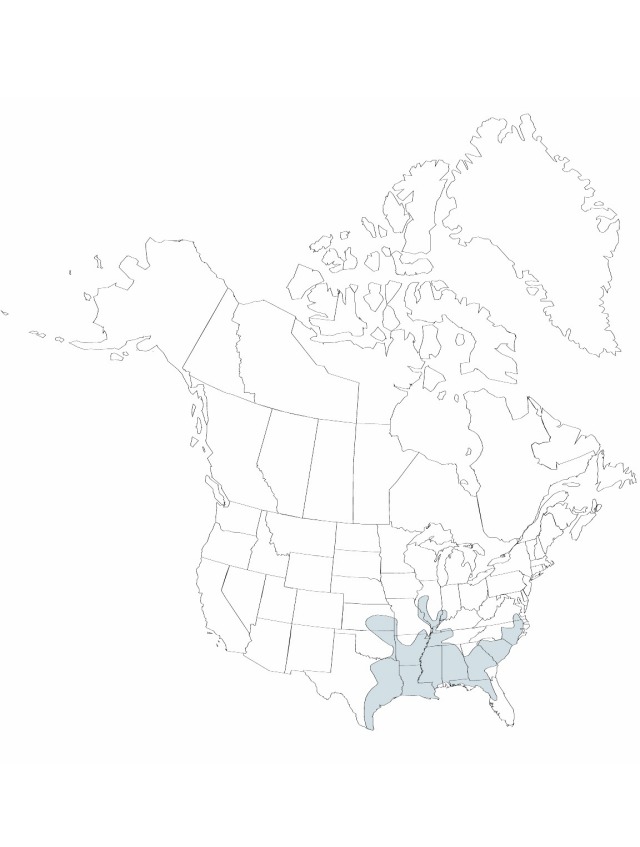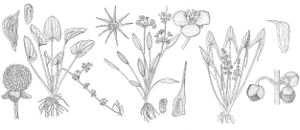Echinodorus cordifolius subsp. cordifolius
Herbs, perennial, stout, to 100 cm; rhizomes present. Leaves emersed, submersed leaves mostly absent; petiole 5–6-ridged, 17.5–45 cm; blade with translucent markings distinct lines, ovate to elliptic, 6.5–32 ´ 2.5–19.1 cm, base truncate to cordate. Inflorescences racemes, of 3–9 whorls, each 3–15-flowered, decumbent to arching, to 62 ´ 8–18 cm, often proliferating; peduncles terete, 35–56 cm; rachis triangular; bracts distinct, subulate, 10–21 mm, coarse, margins coarse; pedicels erect to ascending, 2.1–7.5 cm. Flowers to 25 mm wide; sepals spreading, 10–12-veined, veins papillate; petals not clawed; stamens 22; anthers versatile; pistils 200–250. Fruits oblanceolate, plump, 3–4-ribbed, abaxially 1-keeled, 2–3.5 ´ 0.9–1.5 mm; glands 3–4; beak terminal,1–1.3 mm. 2n = 22.
Phenology: Flowering late summer–early fall.
Habitat: Clay soils of wet ditches, streams, and shallow ponds
Elevation: 0–500 m
Distribution

Ala., Ark., Fla., Ga., Ill., Ind., Kans., Ky., La., Miss., Mo., N.C., Okla., S.C., Tenn., Tex., Va., Mexico (Tamaulipas), West Indies, South America
Discussion
Echinodorus cordifolius is very easily determined, as it is the only species with arching to decumbent inflorescences. In addition, it is the only one with papillate veins on the sepals.
Selected References
None.
